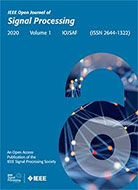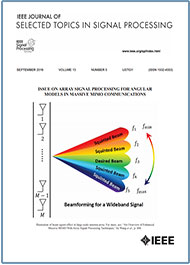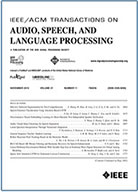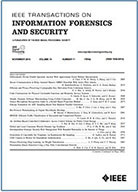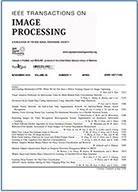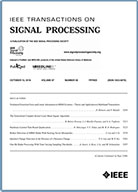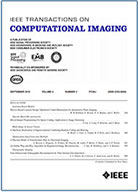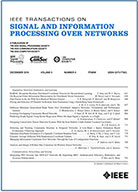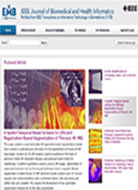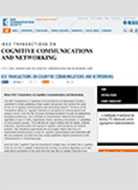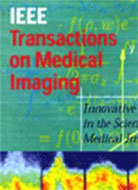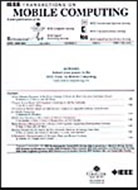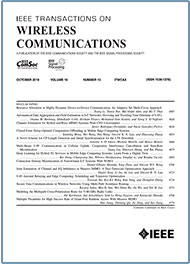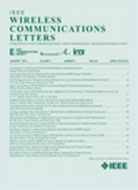IEEE Signal Processing Magazine
IEEE Signal Processing Magazine publishes tutorial-style articles on signal processing research and applications, as well as columns and forums on issues of interest. More...
IEEE Open Journal of Signal Processing
This fully open access journal will publish high-quality, peer-reviewed papers covering the enabling technology for the generation, transformation, extraction, and interpretation of information. It comprises the theory, algorithms with associated architectures and implementations, and applications related to processing information. More...
IEEE Journal of Selected Topics in Signal Processing
The IEEE Journal of Selected Topics in Signal Processing solicits special issues on topics that cover the entire scope of the IEEE Signal Processing Society, as outlined in the SPS Constitution. More...
IEEE Signal Processing Letters
The IEEE Signal Processing Letters is an electronic only, monthly archival publication designed to provide rapid dissemination of original, cutting-edge ideas and timely, significant contributions in all areas within the field of interest of the IEEE SPS. More...
IEEE Transactions on Audio, Speech, and Language Processing
The IEEE Transactions on Audio, Speech, and Language Processing covers audio, speech and language processing and the sciences that support them. More...
IEEE Transactions on Information Forensics and Security
The aim of the IEEE Transactions on Information Forensics and Security is to provide a unified locus for archival research on the fundamental contributions and the mathematics behind information forensics. More...
IEEE Transactions on Image Processing
The IEEE Transactions on Image Processing covers signal-processing aspects of image processing, imaging systems, and image scanning, display, and printing. More...
IEEE Transactions on Signal Processing
The IEEE Transactions on Signal Processing is an internationally subscribed monthly journal which publishes advances in the theory and application of signal processing. More...
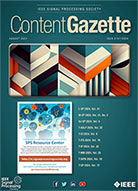
IEEE SPS Content Gazette
IEEE Signal Processing Society monthly Content Gazette publishes SPS publication and magazine table of contents, call for papers, call for proposals, information for authors and Society membership application. More...
Joint Publications
IEEE Transactions on Computational Imaging
The IEEE Transactions on Computational Imaging will publish articles where computation plays an integral role in the image formation process.
IEEE Transactions on Signal and Information Processing over Networks
The IEEE Transactions on Signal and Information Processing over Networks publishes high-quality papers that extend the classical notions of processing of signals defined over vector spaces. More...
IEEE Transactions on Multimedia
The IEEE Transactions on Multimedia covers the breadth of research in multimedia technology and applications, including: circuits, algorithms and architectures, software design, synchronization, and many more.

IEEE Transactions on Big Data
The IEEE Transactions on Big Data publishes peer reviewed articles with big data as the main focus. The articles will provide cross disciplinary innovative research ideas and applications results for big data including novel theory, algorithms and applications.
IEEE Journal on Biomedical and Health Informatics
IEEE Journal of Biomedical and Health Informatics (J-BHI) publishes original papers describing recent advances in the field of biomedical and health informatics where information and communication technologies intersect with health, healthcare, life sciences and biomedicine.
IEEE Transactions on Cognitive Communications and Networking
The IEEE Transactions on Cognitive Communications and Networking (TCCN) is committed to timely publishing of high-quality manuscripts that advance the state-of-the-art of cognitive communications and networking research.
IEEE Transactions on Medical Imaging
IEEE Transactions on Medical Imaging encourages the submission of manuscripts on imaging of body structures, usually in situ, rather than microscopic biological entities.
IEEE Transactions on Mobile Computing
The IEEE Transactions on Mobile Computing focuses on the key technical issues related to architectures, support services, algorithm/protocol design and analysis, mobile environments, mobile communication systems and many more.
IEEE Transactions on Wireless Communications
The IEEE Transactions on Wireless Communications is a major archival journal which will be committed to the timely publication of very high-quality, peer-reviewed, original papers that advance the state-of-the art and applications of wireless communications.
IEEE Wireless Communications Letters
Publishes timely, novel and high-quality recent results on Wireless Communications in letter format. Wireless Communications Letters have a 4-page limit. The journal's goal is rapid dissemination of original, cutting-edge ideas and timely, significant contributions in the theory and applications of wireless communications.

